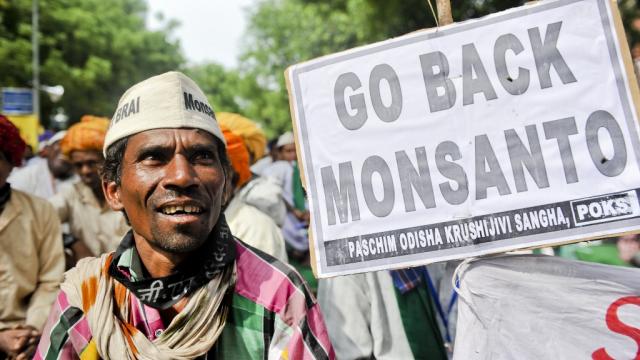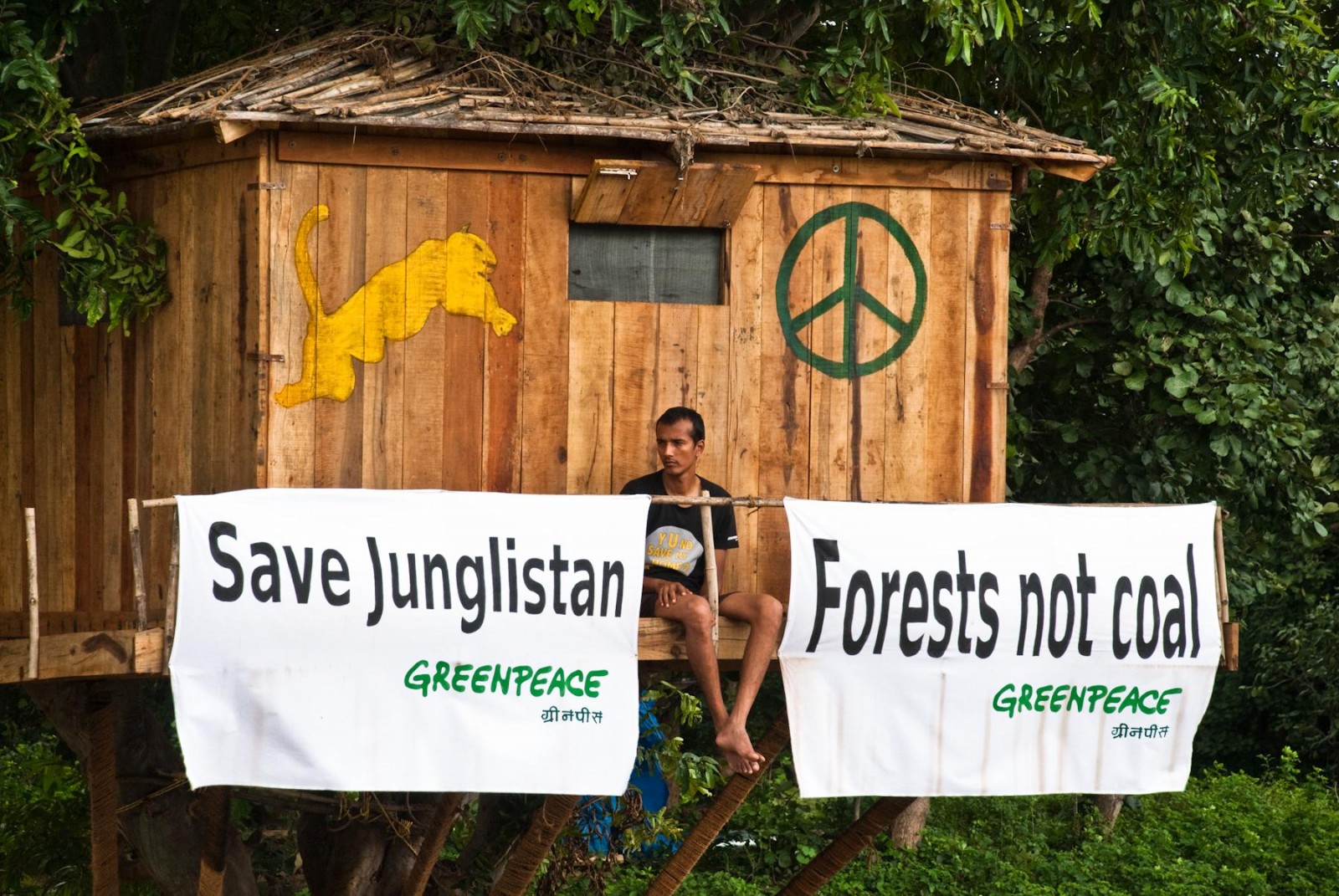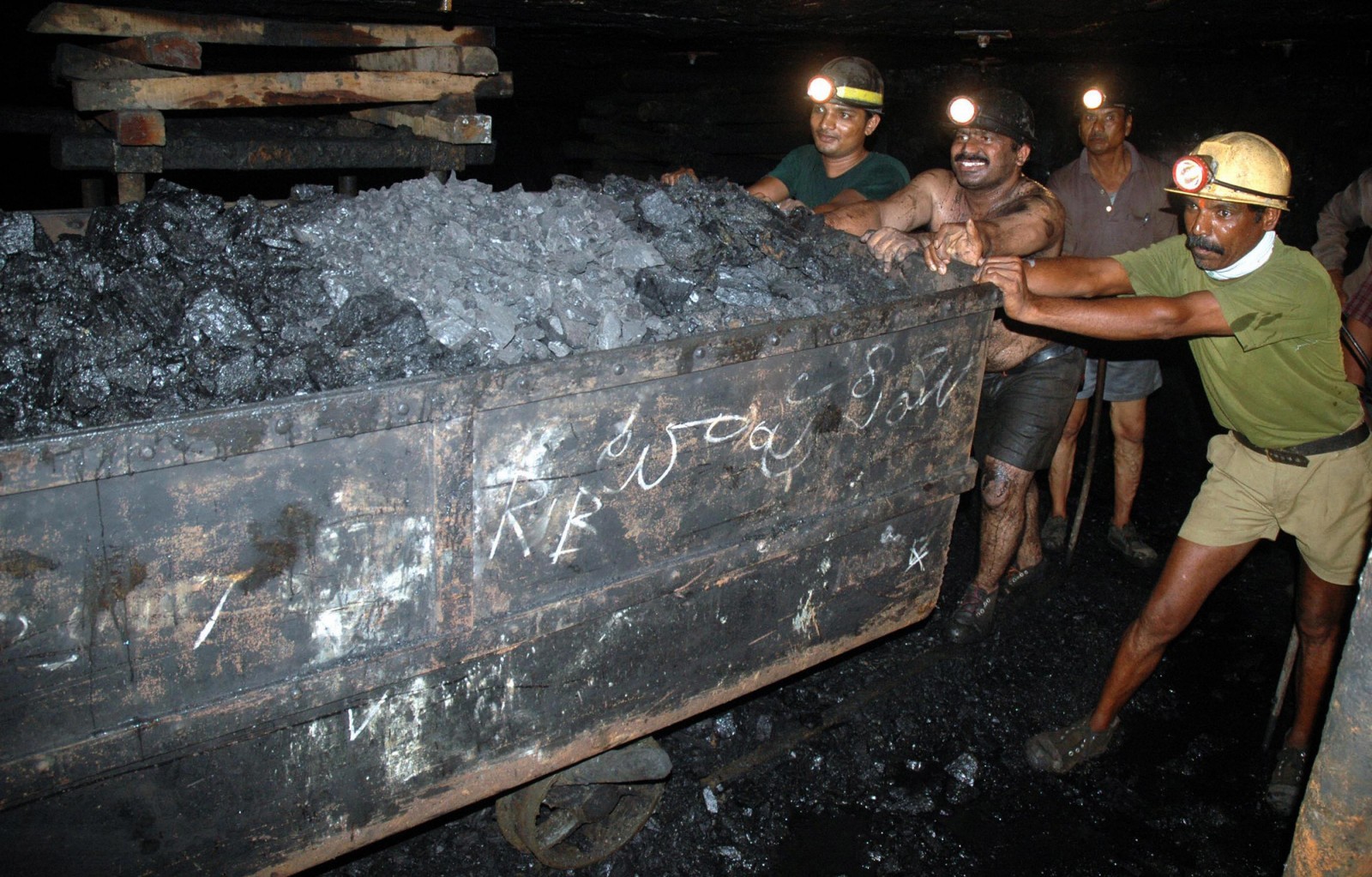
What do oil and reports have in common? They can both sometimes leak and cause great unrest.
In India last month, a furor erupted over a leaked intelligence bureau (IB) report which claimed that NGOs and civil society organizations like Greenpeace were a threat to national security. Other organizations named in the report included the Indian Social Action Forum, Coalition for Nuclear Disarmament and Peace, Popular Education and Action Centre, Alliance for Sustainable and Holistic Agriculture, India For Safe Food and Navdanya.
Not surprisingly, all of the organizations are involved in mobilizing Indians to demand a GMO- and nuclear-free future. The Navdanya GMO Free Campaign, for example, is leading the country's movement against the planting of GMO crops in the country.
Vinuta Gopal, climate campaign manager for Greenpeace, says, “The claims made in this report are absurd. Apparently Greenpeace and others like us have impacted the GDP of the country by 3%. Three percent of India’s GDP is over 3.3 lakh crores, and while this number is completely incorrect, the report shows no proof as to how it arrived at this.” Nowhere does the report reveal how the intelligence bureau collected, processed and arrived at the facts it presented – much less how it deemed those figures to somehow represent a national security threat.
Not Just Finance
In response, activists have viewed the episode as the latest example of India's growth-hungry, business-controlled government to halt protests aimed against corporate-backed and environmentally hazardous projects being promoted in the name of development.
“The IB report demonstrates that this kind of surveillance has been going on a while. It only seeks to underline that development as a concept in India is one that is about bribery, nepotism and a complete lack of planning and foresight,” says environmentalist Saytajit Sanyal.
When Greenpeace put in a request asking to view the report, the government denied its existence. The leaked report, signed by IB joint director S.A. Rizvi, contains many accusations against Greenpeace – chief among them its legal efforts to “change the dynamics of India’s energy mix.”
Greenpeace was also accused of using its "superior network" of pan-India organizations to conduct anti-nuclear agitations, and mounting “massive efforts to take down India’s coal fired power plants and coal mining activity.”
Raising perhaps most concern from civil society was the report’s emphasis on how the nonprofit organizations run “people centric issues” that are harmful to the country’s growth.
“Why is protesting for people’s right to clean air, water and livelihood a crime?” says Gopal. “While Greenpeace’s role has always been emphasizing pro-people issues, we aren’t the only ones talking about a sustainable world.”
Underlining a need for sustainable growth in India, a recent World Bank report stated, “Although the past decade of rapid economic growth has brought many benefits to India, the environment has suffered, exposing the population to serious air and water pollution.”
The People vs. POSCO
The leaked IB report underscored the many environmental fights that everyday Indians are waging with the help of organizations mentioned in the report – the primary one being the battle over a proposed iron ore mining operation, known as POSCO, being conducted by Posco India in the Khandadhar hills.
The people of Jagatsinghpur have been resisting the POSCO project for the last nine years. In a recent film produced by the Video Volunteers, UN Special Rapporteur on Freedom of Peaceful Assembly and Association, Maina Kiai, went on record saying, “People in the project-affected area have reportedly been subjected to violence, harassment and intimidation, as well as arbitrary detentions and false charges, as a result of their activities to assemble peacefully and collectively defend their human rights.”
Protecting the rights of indigenous people is also a prime objective of Navdanya, founded by the renowned scientist and environmentalist Dr. Vandana Shiva. Through its organic seed banks, the group is working to save the fields of Indian farmers from GM seeds that ultimately deplete the soil and ruin livelihoods. Navdanya was created to protect farmers in the context of emerging threats like the Trade Related Intellectual Property Rights (TRIPS) Agreement put forward by the World Trade Organization, which further opened the door in India to GMOs, seed patents and the collection of royalties from those patents.
The Fight Raging Against Biotech
Headquartered in New Delhi with a biodiversity farm in Dehradun, Navdanya grows more than 1,500 varieties of seed in organic settings where the seeds adapt to seasonal variations — like lots of rain one season and no rain the next. Now, it stands in the direct line of fire as a Biotechnology Regulatory Authority of India (BRAI) bill threatens to ensure India's government complete rights to regulate the research, transport, import, manufacture and use of organisms and products emerging from modern biotechnology.
Last year, India rejected two patent appeals by biotech giant Monsanto, dealing the latest setback to a company that recoups its research investments in large part via its sale of patents.
“This had given us the hope that perhaps the government is finally recognizing the hazards we the common farmers of the country are exposed to,” said Mannu, a farmer in Chhattisgarh, stating that he is very disillusioned with the way the environment is being treated in India. All the more reason, it seems, that groups like Navdanya, Greenpeace and others have worked hard to push back against the corporate tide – with enough success that the government felt compelled to label them a national security threat.
Exposing Government's Corporate Propaganda
Social activist Aruna Roy, in an interview, made a crucial point about the recent IB report, saying, “As some commentators have observed, parts of the report seem to be almost plagiarized from a book that made similar sets of allegations, and was released by the current Prime Minister when he was Chief Minister of Gujarat.”
Thought the Prime Minister’s office claimed not to have seen the report, measures mentioned in the report are already being put in place. The Union home ministry recently instructed the Reserve Bank of India to seek prior permission from the ministry to clear any donation made to Greenpeace India by Greenpeace International or the Climate Works Foundation. This was ostensibly in reaction to the report's claims that Greenpeace participated in the “funding of research bodies” whose findings might imperil economic growth.
But Greenpeace and the other accused organizations stand undeterred. “This will not affect the way we work,” says Gopal, the group's climate campaign manager. “We don’t depend on corporate sponsorships. We work with individual donations and I don’t think this report will affect the relationships we have with our individual supporters.”
Greenpeace raises about 61% of its contributions in India from individuals, Gopal adds. “Our accounts are very transparent and available for public scrutiny at all times."
Follow the author Paromita Pain on the Commons or on twitter at @ParoP
3 WAYS TO SHOW YOUR SUPPORT
- Log in to post comments















